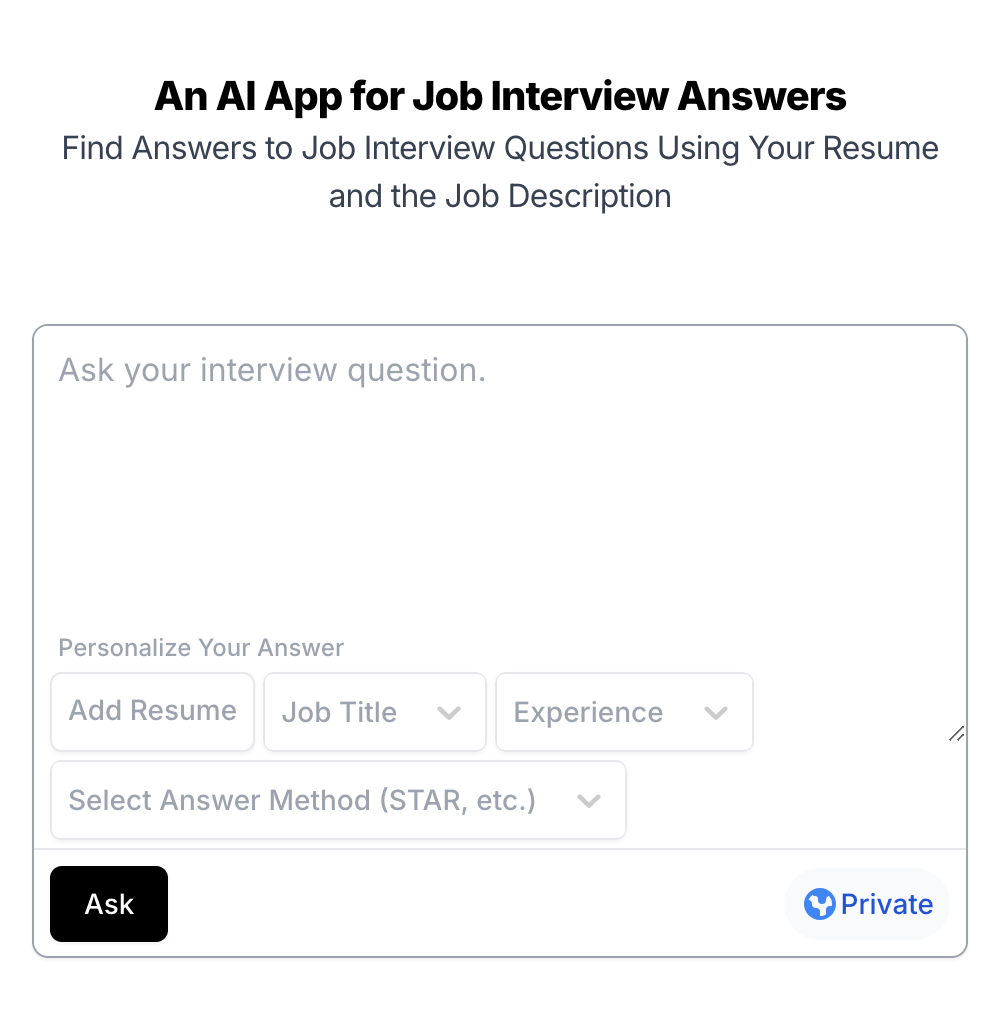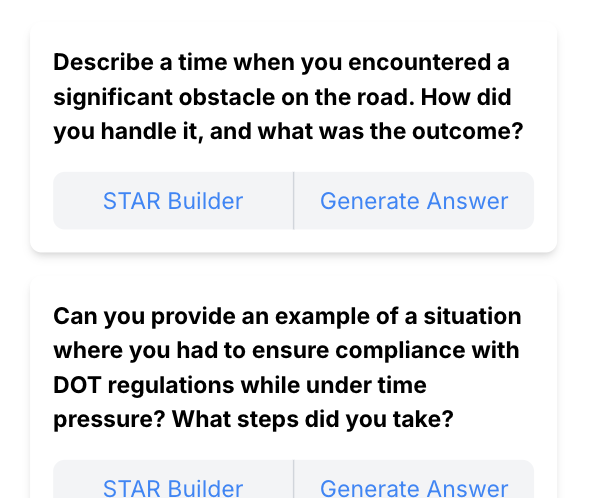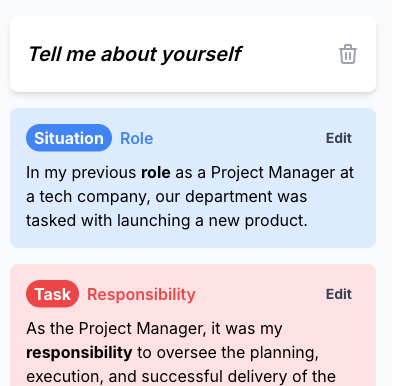
Motivational Interview Questions: What You Need to Know
Fri Aug 23 2024•Author: InterviewPro AI
Table of Contents
- What Are They?
- Common Examples
- Answer Length
- What to Avoid Saying
- Possible Follow-Ups
- More Follow-Up Questions
- When They're Asked
- Who Asks Them
- Why They Matter
- How to Answer Well
- Answer Structure
What Are They?
Motivational questions ask about what drives you and why you want the job. Employers use them to understand your career goals, work ethic, and how you fit with the company. They want to know what keeps you going and how you align with their values.
5 Common Examples
- Why do you want to work for our company?
- What motivates you to do your best work?
- Where do you see yourself in five years?
- What are your career goals?
- Why did you choose this career path?
Answer Length
Aim for about 1-2 minutes per answer. This gives you enough time to explain your motivations without going off-topic. Your answer shows what drives you, so keep it focused and relevant.
What to Avoid Saying
Don't say these things when answering motivational questions:
-
Don't focus only on money Bad example: "I'm just here for the paycheck." Why it's bad: This suggests you're not interested in the job itself.
-
Don't be vague Bad example: "I just want to be successful." Why it's bad: This doesn't show specific goals or motivations.
-
Don't badmouth previous employers Bad example: "My last boss was terrible, so I'm looking for something better." Why it's bad: This makes you look negative and unprofessional.
-
Don't show lack of ambition Bad example: "I don't really have any career goals." Why it's bad: This suggests you're not motivated to grow or improve.
-
Don't give unrealistic answers Bad example: "I want to be CEO within two years." Why it's bad: This shows you might have unrealistic expectations.
-
Don't say you're only there for experience Bad example: "I just need some experience before moving on to something else." Why it's bad: This suggests you're not committed to the role or company.
-
Don't show a lack of research Bad example: "I don't know much about your company, but I need a job." Why it's bad: This shows you're not really interested in this specific role.
Show that you're motivated, ambitious, and interested in the company and role.
Possible Follow-Ups
After you answer, the interviewer might ask more about your motivations. They could ask about:
-
Specific examples: They might want to know about times when you were highly motivated. Example: "Can you tell me about a time when you felt really motivated at work?"
-
Long-term goals: They could ask how this job fits into your career plans. Example: "How does this position align with your long-term career goals?"
-
Company fit: They might ask why you think you'd be motivated in their company. Example: "What about our company culture do you think will keep you motivated?"
-
Overcoming challenges: They could ask how you stay motivated when things get tough. Example: "How do you keep yourself motivated when facing difficult tasks or setbacks?"
-
Personal growth: They might ask about your plans for development. Example: "What skills or experiences are you hoping to gain in this role?"
5 More Follow-Up Questions
- "How do you motivate others in a team setting?"
- "What's the biggest professional challenge you've overcome, and what motivated you to do so?"
- "How do you balance your career goals with your personal life?"
- "What kind of work environment helps you stay motivated?"
- "How do you handle situations where you feel unmotivated?"
When They're Asked
You might hear these questions at different stages:
-
Application: Some applications ask about your motivations for applying. Example: "Why are you interested in this position?"
-
First Interview: This is when you'll probably get most motivational questions. Example: "What drives you to succeed in your career?"
-
Later Interviews: You might get more specific questions about motivation here. Example: "How does this role fit into your long-term career plans?"
-
Final Stages: They might ask about your motivation to accept the job. Example: "What would motivate you to accept this position if offered?"
-
Follow-up: They might ask motivational questions after the interview. Example: "After learning more about the role, what excites you most about it?"
These questions can come up at any time, so be prepared throughout the process.
Who Asks Them
-
HR People: Example: "What motivates you to come to work every day?"
-
Hiring Managers: Example: "Why are you passionate about this field?"
-
Team Leaders: Example: "What kind of projects motivate you to do your best work?"
-
Potential Coworkers: Example: "What do you find most rewarding about this type of work?"
-
Top Managers: Example: "How do you see yourself contributing to our company's mission?"
-
Outside Recruiters: Example: "What are you looking for in your next role that will keep you motivated?"
Different people might ask motivational questions to see how you'd fit into various aspects of the job and company.
Why They Matter
These questions show what drives you and how committed you are to your career and the company. They help employers understand if you'll be engaged and productive in the role. They use these questions to see if your motivations match what they can offer and if you'll be a good long-term fit.
How to Answer Well
- Be honest about what motivates you
- Connect your motivations to the job and company
- Show enthusiasm for the role and industry
- Highlight your relevant skills and experiences
- Demonstrate your knowledge of the company
Answer Structure
Use this plan to organize your thoughts:
- State your motivation: Clearly express what drives you
- Give an example: Share a specific instance that illustrates your motivation
- Connect to the job: Explain how your motivations align with the role
- Look forward: Discuss how this motivation will help you succeed in the position
Motivational questions let you show your passion and commitment. Use them to demonstrate why you're the right fit for the job and company. Your answer helps employers understand your drive and potential, so focus on showing genuine enthusiasm and alignment with the role.
Can't find what you're looking for?
Try our AI-Powered Interview Preparation Tools
Prepare for your job interview with our AI tools. Tailored answers, custom questions, and STAR method responses.


